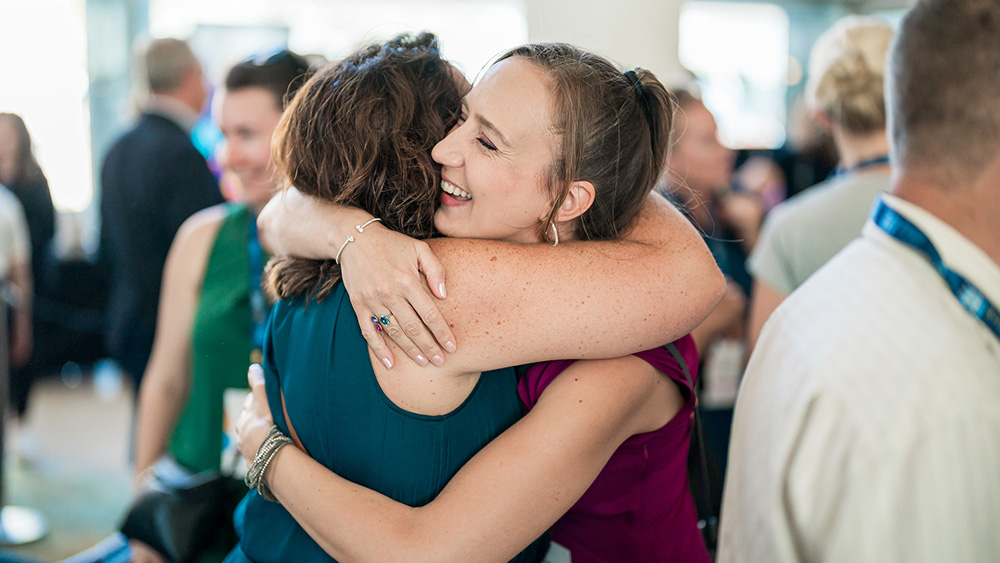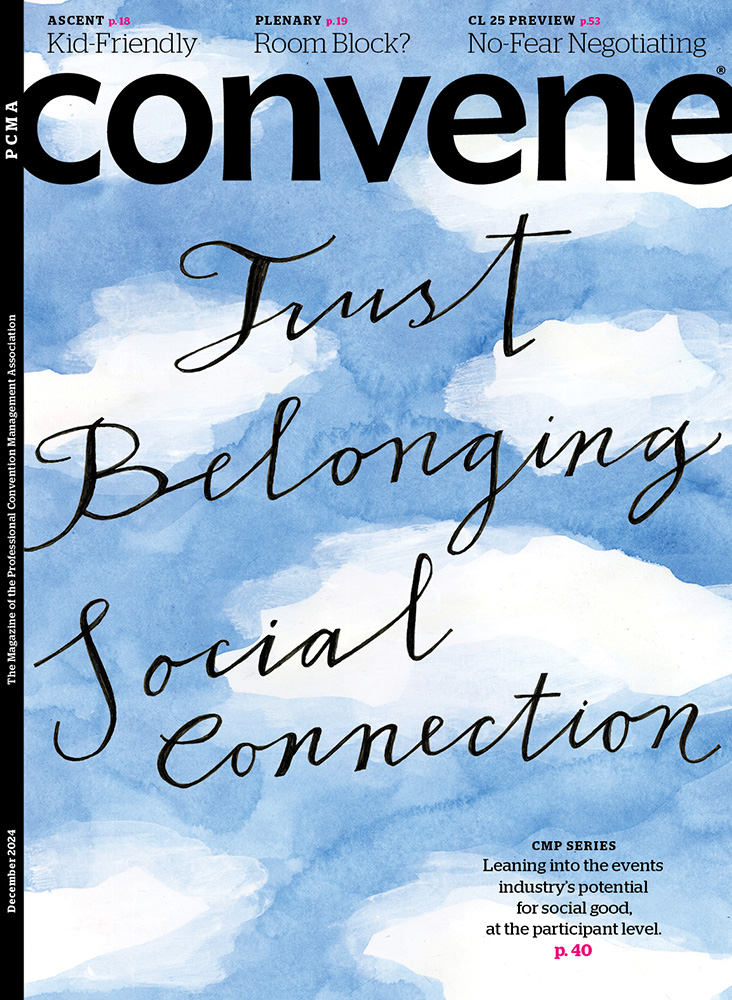
“Some people feel belonging by running into old friends,” said author Dan Berger, which often happens at business events like Convening EMEA 2024 in Barcelona, Spain. (Joan Gosa photo)
In his book, The Quest: The Definitive Guide to Finding Belonging, Dan Berger identifies six major categories of activities or strategies that fuel belonging, and meetings, he told Convene, check off five out of six of the boxes. The categories include:

Dan Berger
Collective Experiences
By definition, events are collective experiences, Berger said, and can be a place where people, for the most part, can find belonging. “But organizers have to understand how event participants find belonging and put together programs based on that.” One example of this, shared with Convene via email, comes from Stephanie D. Jones, CAE, CMP Fellow, SEPC, managing director, event strategy, for The Water Environment Federation (WEF). WEF launched Affinity Group community events at its annual conference in 2023, to “create safe spaces for people who share a common interest, identity, or experience to connect, feel empowered, and share learned experiences,” Jones said. “WEF provides the meeting space, financial support for F&B and AV and the groups are free to curate their own agenda or program.”
Interpersonal Relationships
Meetings and associations are platforms for relationship-building and forging bonds with others, Berger said. Organizers can intentionally create different kinds of experiences for participants that recognize that “some people feel belonging by running into old friends, and some people feel belonging talking to strangers. Some people feel belonging in a small group.”
Casual Encounters
Meetings also offer multiple opportunities for casual encounters, small social interactions that create connection but lack depth, Berger said, like when participants “collide with one another” at an event. “They are seemingly inconsequential, but together they profoundly affect our sense of belonging.”
RELATED: An Event Entrepreneur’s Quest to Redefine Belonging
Esteem-Building
When people feel proud to be a part of the event, it boosts self-esteem, which is another avenue for belonging, Berger said. Award shows also can positively affect self-esteem, although many of them tend to be insular, he said. “If people get belonging from self-esteem, why not make that a bigger tent?”
Symbolic Bonds
This category includes connections that people feel to someone when they don’t have a direct relationship with them, Berger said. For example, event participants can derive a sense of belonging when they identify with speakers or admire the leadership of an organization.
Barbara Palmer is deputy editor of Convene.
Emotional Engagement
- How Events Can Foster Emotional Engagement
- At Conferences, We Trust: How Shared Experiences Break Down Cynicism
- An Event Entrepreneur’s Quest to Redefine Belonging
- Convention Centers Get Cozy With Intimate Meeting Spaces
- How to Make Belonging the Centerpiece of Your Events
- Social Connection: There’s an App for That
Earn CMP Credit
Earn one clock hour of certification by visiting pcma.org/convene-cmp-series to answer questions about the articles in this cover story package. The Certified Meeting Professional (CMP) is a registered trademark of the Events Industry Council.

